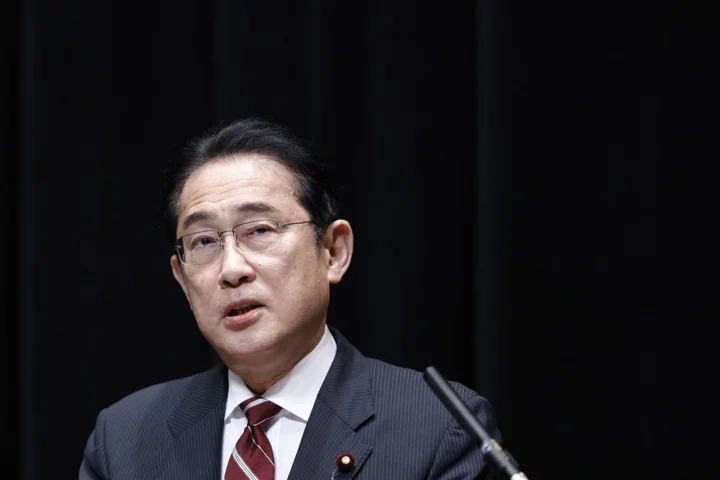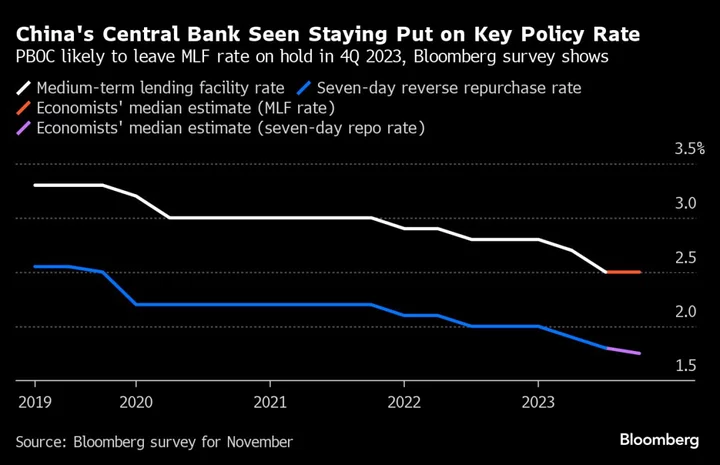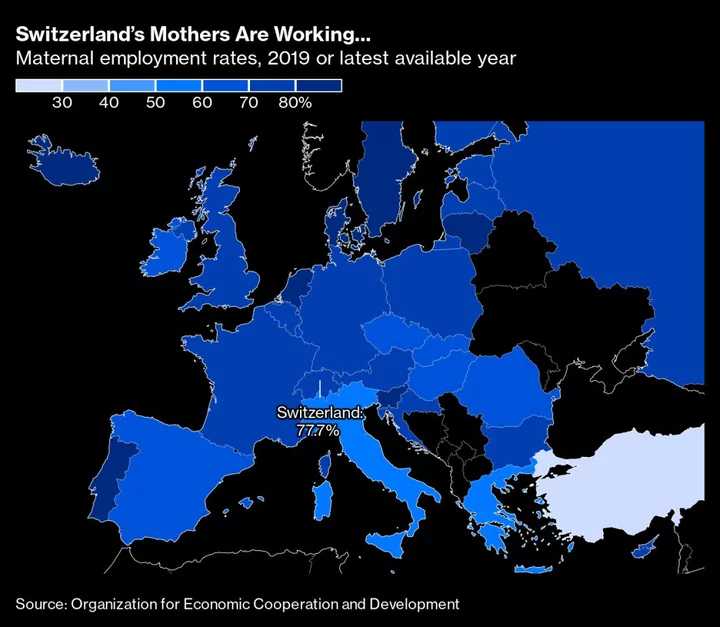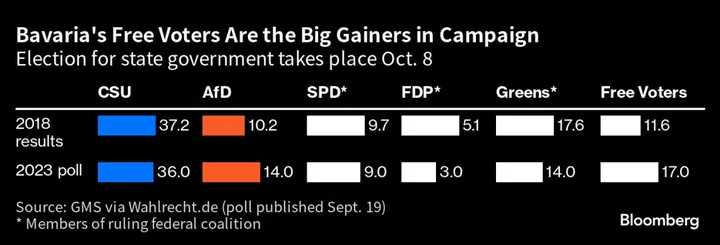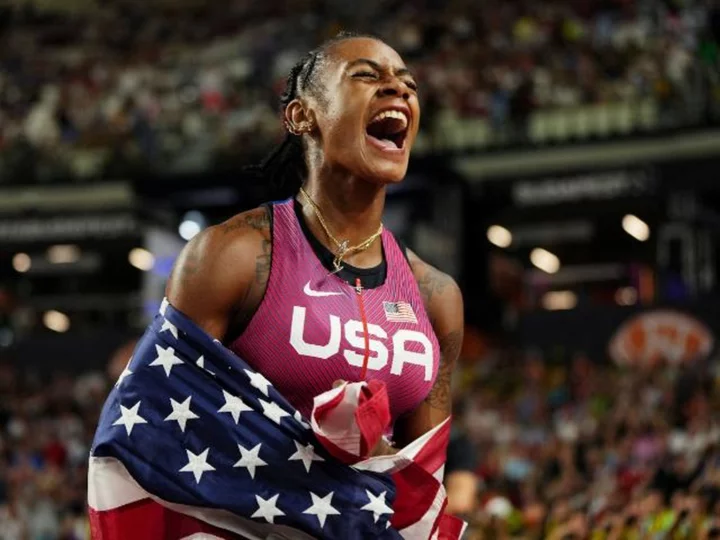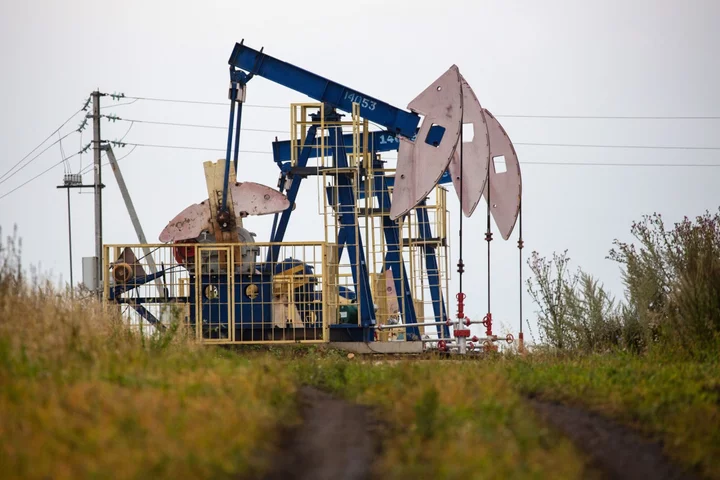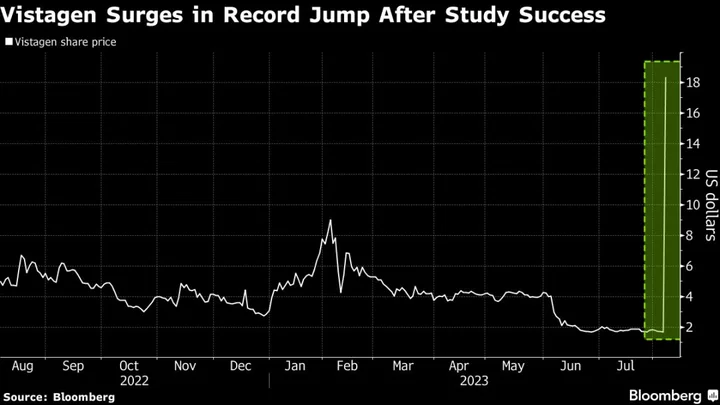Japanese Prime Minister Fumio Kishida is among Asian leaders seeking to enhance ties with NATO during a key summit in Lithuania next week. Yet the alliance is split on what exactly that looks like as they grapple with how to deal with China.
Kishida will use the opportunity to stress the need for relations between Japan and the North Atlantic Treaty Organization to be stronger, Chief Cabinet Secretary Hirokazu Matsuno said Friday, despite objections from Beijing over the alliance’s activities in the region. Kishida will be joined in Vilnius by leaders from South Korea, Australia and New Zealand.
The visit will show that “security in the Indo-Pacific and Europe is inseparable,” Matsuno told reporters on Friday, adding it would confirm the “stronger engagement of NATO” in the region.
NATO allies are in discussions about a possible statement with the four Indo-Pacific countries that would set out deeper cooperation and reiterate that security in Europe is interlinked with security in the region, according to a senior European diplomat.
But there are some conceptual disagreements between allies on whether NATO’s focus should stay within the area of responsibilities of the alliance’s supreme commander, which extends from northern Europe to southern Europe and from the Atlantic coastline to eastern Turkey. Others want NATO to take a broader view on issues affecting the alliance’s security, said the diplomat, who spoke on the condition of anonymity.
After naming Beijing as a challenge to the alliance last year, the 31-nation bloc has sought to deepen ties with the US’s closest friends in the region. But when plans emerged in May to open NATO’s first office in Asia, French President Emmanuel Macron took issue before warning any attempt to enlarge NATO’s ambit would be a “big mistake.”
Chinese President Xi Jinping’s continued support for Vladimir Putin more than 16 months since his forces invaded Ukraine has focused European strategies regarding Beijing. NATO condemned China and Russia’s partnership as an affront to the rules-based international order and said China poses a “systemic challenge” to the alliance.
“What happens in Asia matters for Europe and what happens in Europe matters for Asia,” NATO Secretary General Jens Stoltenberg, who recently visited Japan and Korea, said in June.
The stance comes as Washington seeks to develop various multilateral mechanisms in the Indo-Pacific region, something Beijing says is designed to contain its rise. NATO’s most powerful member in particular has pressed the importance of China’s rise within the alliance.
Those efforts appear to have found some resonance. Kishida paid a visit to Europe earlier this year to strengthen military ties before the Japanese Air Force participated in the largest deployment exercise in NATO’s history. South Korea’s defense exports — with the US’s blessing — more than doubled last year on growing demand in places like eastern Europe.
Europe, in turn, realizes it also must play a greater role in the Indo-Pacific, even if the specifics are still being debated.
“European members of NATO would have to take on more responsibility than is the case today,” German Defense Minister Boris Pistorius said in a recent interview with German broadcaster ZDF. “I believe everyone is conscious of this.”
This year’s NATO summit will have sessions devoted to enhancing partnerships with the four Indo-Pacific nations, US National Security Advisor Jake Sullivan recently said in Tokyo. NATO and Japan are reportedly also set to announce the main pillars of a new cooperation that includes an alignment of defense equipment.
“What we have to be careful about is that Japan’s strength as a country of course has limits,” said Akihisa Nagashima, a former vice-defense minister and now current member of the lower house security committee. “If Japan has to take part in all NATO operations, its own vicinity will be neglected.”
The relationship between Washington and Beijing is only just now showing signs of thawing after a tumultuous year including when an alleged spy balloon was traveling over the US. Asian leaders, while encouraged by the recent high-profile visits by senior US officials to Beijing, continue to warn about the prospect of an incident that could trigger a conflict.
China has accused the US of looking to set up a similar alliance to NATO in Asia, despite Washington’s denials.
“The attitude of the majority of countries in the region is very clear. They oppose the emergence of military blocs,” Chinese foreign ministry spokesperson Wang Wenbin told reporters in June. “They don’t welcome NATO’s outreach in Asia.”
Southeast Asian nations have largely sought to avoid choosing sides between the US and China, or with Russia, which has a long diplomatic history in the region. Some countries also differ with NATO’s approach to Ukraine.
Indonesia Defense Minister Prabowo Subianto last month pitched a peace proposal that appeared to have many similarities to a Chinese blueprint that’s been largely rejected in Europe. Cambodian Prime Minister Hun Sen has said it would be “impossible” for Ukraine to regain all the territory now occupied by Russia.
NATO’s activities in Asia are likely to be limited to individual countries primarily dealing with US allies in the region as concerns about China increase, according to Bilahari Kausikan, Singapore’s former permanent secretary for foreign affairs.
“The significance is much more political than military or strategic,” he said of NATO’s deepening ties in the region. “These are significant, but we should not exaggerate their significance.”
--With assistance from Ania Nussbaum.
Author: Isabel Reynolds, Philip J. Heijmans and Natalia Drozdiak

